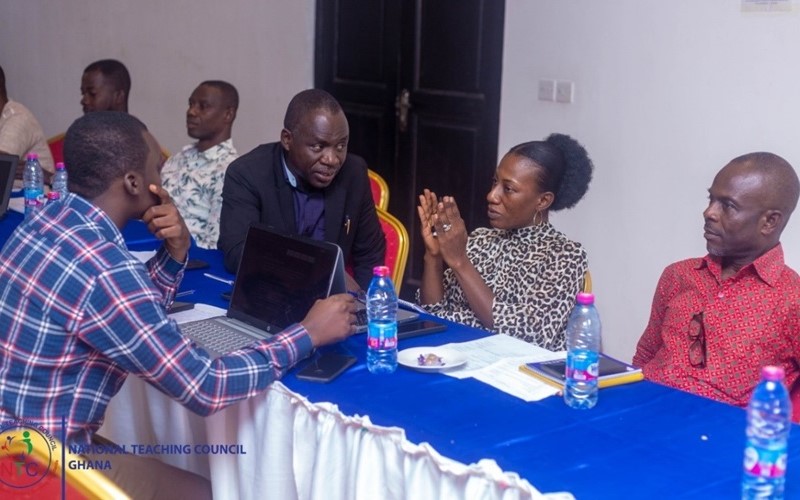
Open and Distance Learning (ODL) continues to hold the promise of improving the quality of teacher training and professional development globally. It also offers opportunities for diverse, flexible and scalable learning, pointing to the need for comprehensive national policies and frameworks.
In Accra, Ghana, a three-day workshop was recently held, bringing together 50 key stakeholders that included education leaders, college principals, teachers, lecturers and university representatives. The event, “National Policy Dialogue Workshop on ODL for Teacher Training,” was hosted by the National Teaching Council (NTC) of Ghana, with support from the Commonwealth of Learning (COL).
The primary focus of the workshop was to provide a platform for high-level stakeholder engagement on the status of national ODL policies as well as practices in teacher training and professional development. During the workshop, participants were presented with findings from a baseline study on the current state of teacher training through ODL in Ghana, which set the stage for in-depth group discussions and brainstorming sessions on policy options for the implementation of ODL in teacher training.
Speaking on behalf of the Registrar, NTC, Mr Lawrence Sarpong expressed gratitude to COL for its support. “We are thankful to the Commonwealth of Learning for their continuous support towards more efficient and effective teacher training and professional development using technology.”
COL’s Education Specialist: Teacher Education, Dr Betty Ogange, said, “ODL has been found to be a necessary step in streamlining and enhancing the effectiveness of teacher training programmes across most countries. Relevant national policies are needed to fully harness its potential in education and training.”
The workshop marked an important milestone in Ghana’s educational reforms, highlighting the country’s commitment to adopting modern methodologies in teacher training for better educational outcomes. As an outcome of the workshop, a draft national ODL policy for teacher training has been developed and is ready for ministerial-level engagement and other consultations towards adoption by the government.


